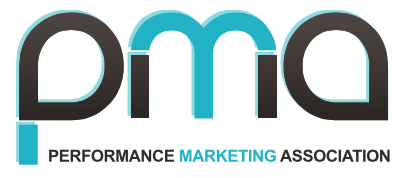Avoiding Trademark Pitfalls in Affiliate Marketing

Image credit: rukanoga
Fanatics is a Corporate Member of the Performance Marketing Association. This article originally appeared in FeedFront Magazine, Issue 16.
Trademark (n) – A symbol, word, or words legally registered or established by use as representing a company or product.
It seems too easy to become successful as an affiliate – I mean, all you have to do is find a popular product, pick up a good domain with that product name in it (so you can get that exact match domain Google love), throw up a Facebook Page in the name of the product, and do some paid search using the product name and the Display URL of the merchant.
The money will flow in and all will be right with the world.
Not quite.
In reality, what you will likely accomplish is setting of a string of events that will include Cease and Desist letters, terminations from affiliate programs, forfeited commissions and potential lawsuits.
The reason for all of this legal madness is simple – in taking all of the actions listed above, you are likely infringing on trademarks. It’s unethical and illegal; and it’s also easy to avoid.
Here’s what you can do to help keep yourself in the clear when it comes to trademarks in affiliate marketing:
- Know what is trademarked and what isn’t – there is a free tool that allows you to do this at feedfront.com/trademarks
- Unless you receive written permission from the trademark holder, don’t use exact product names in your domains. That exact match domain may sound great and it may lead to some nice traffic, but it’s not a long term strategy for success.
- If you do Paid Search – make sure that you know and observe the restrictions on use of trademarked terms and use of the merchant’s display URL.
When you set up your Facebook Pages – be mindful of trademarks and brand names here as well – make sure to avoid any use of “official” or use of trademarked logos or images in your Page. - A disclaimer itself is not enough – you need to avoid infringing on the trademark in the first place.
In all of these cases, the big issue you are looking to avoid is shopper confusion. If you are looking to profit from that confusion, or appearing to be the official site or page in place of the true mark holder, you are setting yourself up for a fall.
Infringing on trademarks is serious business and penalties for doing it start with receiving an injunction to force you to stop doing what you are doing, and end with fines and penalties that can target all proceeds that were gained illegally.
If you have any doubt as to whether a domain or a marketing technique is safe when it comes to trademarks, consult a lawyer with experience with internet trademark law. It will cost you some money up front, but will save you money and peace of mind in the long run.
Wade
Latest posts by Wade (see all)
- Avoiding Trademark Pitfalls in Affiliate Marketing - March 17, 2014

 Follow
Follow
Peter
March 17, 2014 at 4:43 pmGood post. Also, don’t even think about trying to use variations of trademarks to skim some fat finger traffic your way… or to scoop some “easy” commissions through an affiliate link.
It’s illegal (ref Anticybersquatting Consumer Protection Act) and you will get caught and could end up paying $10,000 per domain in fines.
-Peter